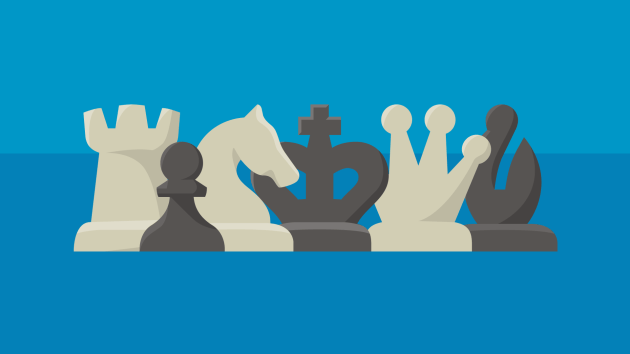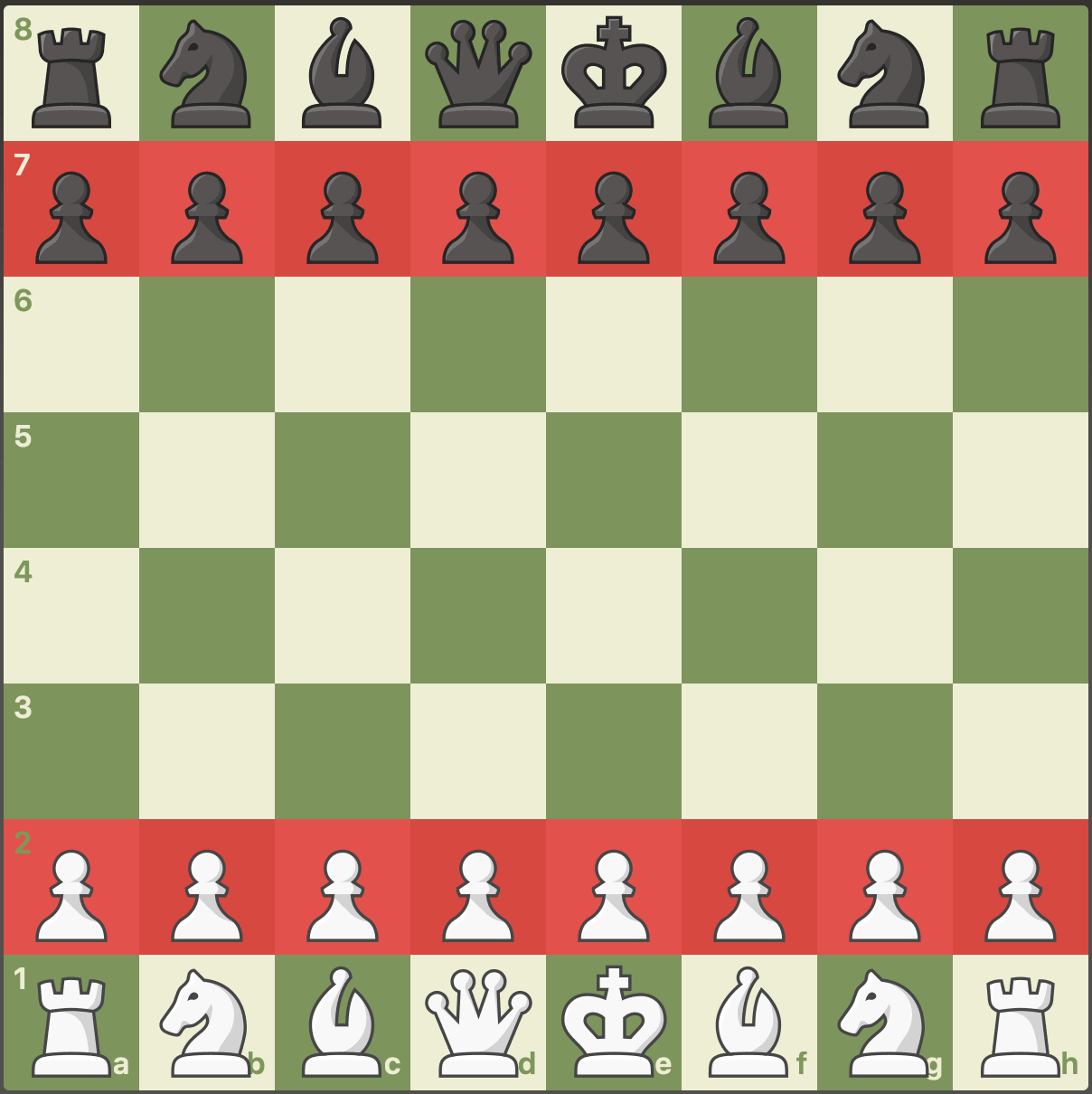Chess Prodigies: Rising Stars Shape the Game
Why You Must Play Chess: The Advantages of Participating In This Classic Intellectual Challenge
Chess is greater than an easy video game; it acts as a strenuous psychological exercise that hones various cognitive abilities. Players participate in tactical reasoning and develop analytic abilities, which can have long-term advantages in everyday life. The discipline needed for renovation fosters persistence and strength. Yet, the true significance of chess lies not just in its intellectual needs but in the connections it cultivates within a neighborhood. Exploring these dimensions reveals much concerning why chess stays ageless.
Enhancing Cognitive Abilities
Playing chess substantially enhances cognitive skills, making it a valuable activity for individuals of every ages. The video game needs tactical thinking and insight, needing players to anticipate their challenger's steps while formulating a winning approach. This psychological workout develops emphasis and focus, vital parts of cognitive feature.

In addition, chess urges creativity, prompting players to check out cutting-edge tactics and unique approaches to the game. As they browse the chessboard, people create persistence and durability, essential attributes for cognitive development. On the whole, the diverse cognitive benefits of chess make it an enriching search, advertising lifelong imagination and intellectual involvement.
Enhancing Problem-Solving Abilities
Numerous researches have actually shown that involving in chess can substantially improve analytical abilities. The game needs gamers to examine complex placements and expect the challenger's steps, fostering crucial assuming skills. As they browse various circumstances, chess players create the ability to examine multiple end results and make tactical choices under pressure. This procedure enhances their capability to approach real-life issues with an organized way of thinking.
Chess promotes the recognition of patterns and the application of logical reasoning, abilities that are essential in efficient analytic. Players discover to analyze risks and rewards, refining their judgment in unsure scenarios. The repetitive nature of chess play reinforces these abilities, allowing people to move their boosted problem-solving capacities to academic and professional contexts. Ultimately, chess works as a useful device for anyone seeking to sharpen their analytical skills and improve their general cognitive performance in tough circumstances.
Growing Patience and Technique
While taking part in chess can be an amazing experience, it also needs a substantial degree of persistence and self-control. Players need to find out to carefully take into consideration each action, evaluating prospective outcomes and methods. This thoughtful technique promotes a frame of mind that values long-term success over immediate satisfaction. In chess, hasty decisions frequently lead to unfavorable effects, enhancing the value of taking one's time to evaluate the board and anticipate a challenger's reactions.

Discipline is additional grown with regular method and study. Players frequently devote hours to improving their skills, studying strategies, and assessing previous games. This commitment to understanding the game infuses a feeling of responsibility and willpower, important characteristics that prolong beyond the chessboard. Ultimately, the mix of patience and technique not only boosts a player's chess capacities yet likewise contributes to individual development, equipping individuals with crucial tools for navigating obstacles in numerous elements of life.
Fostering Creative Thinking and Imagination

Strategizing steps entails not simply reasoning however likewise the ability to anticipate a challenger's reactions, urging gamers to visualize numerous paths and options. As players try out different tactics, they discover to innovate and adjust, boosting their imaginative problem-solving abilities.
In addition, the Get the facts game's complexity invites players to discover non-traditional ideas and techniques, leading to personal designs of play. This expedition nurtures a sense of artistic expression, as each gamer crafts their very own technique to difficulties on the board. Eventually, chess becomes a canvas for creative thinking, enabling people to express their unique viewpoints while establishing their imaginative abilities
Building Social Connections and Community
Playing chess offers possibilities for individuals to network via events and neighborhood chess clubs. These settings promote links among gamers, producing a feeling of recreation center around a common enthusiasm. Engaging in these tasks not just boosts skills yet likewise constructs enduring partnerships.
Networking Through Tournaments
When individuals engage in chess events, they commonly find themselves involved in a dynamic community of similar people. These events supply an excellent platform for gamers to forge connections, share strategies, and commemorate their interest for the game. Participating in friendly competition promotes friendship, as players from diverse histories come together to test each other. Networking opportunities are plentiful, with many individuals forming enduring friendships that prolong beyond the chessboard. In addition, site link these tournaments usually attract sponsors and chess enthusiasts, additionally boosting the potential for professional connections. As players engage in discussions regarding methods and experiences, they construct a network that can lead to future partnerships and chances within the chess world and past.
Local Chess Clubs

Supplying a Fun and Involving Difficulty
Chess offers a distinctly boosting experience that mesmerizes players of any ages, as it combines critical reasoning with the thrill of competition. This classic video game provides a compelling challenge, motivating people to believe critically and creatively. Each match unravels as a fight of wits, where gamers need to anticipate their opponent's actions while creating their own methods.
The intellectual involvement chess supplies is matched by its ability to amuse. Players usually discover themselves submersed in the video game, misplacing time as they browse complicated placements and tactical problems (Chess). This enhanced emphasis promotes a sense of success, especially when a hard relocation results in victory
Chess promotes social interaction, enabling players to bond over common experiences and challenges. The game's countless variants guarantee this hyperlink that no two sessions are alike, keeping participants passionate to improve their abilities and strategies. This dynamic blend of obstacle and enjoyment makes chess an irresistible pursuit.
Often Asked Concerns
Can Chess Be Played Online or Just face to face?
Chess can be played both online and personally. Online systems supply gamers the convenience of competing against opponents worldwide, while in-person games foster social interaction and physical presence, enriching the general experience.
What Age Is Finest to Begin Knowing Chess?
Professionals suggest that children can begin finding out chess as early as age five or six. At this age, they can understand basic concepts, enhancing cognitive abilities while cultivating a love for the video game that lasts a life time.
Exist Chess Tournaments for Beginners?
Yes, there are chess events particularly made for novices. These occasions give a supportive environment for newbie gamers to get experience, enhance their skills, and enjoy the affordable spirit of chess without encountering advanced opponents.
The length of time Does It Take to End Up Being Proficient at Chess?
Coming to be efficient at chess usually needs constant technique over numerous months to years. Elements such as specific dedication, prior experience, and research study of strategies significantly influence the time needed to get to an experienced level.
What Resources Are Offered for Understanding Chess Methods?
Various resources exist for learning chess techniques, including online tutorials, books by prominent writers, chess apps, and interactive internet sites. Numerous players likewise benefit from joining neighborhood clubs or getting involved in on the internet discussion forums for real-time insights.